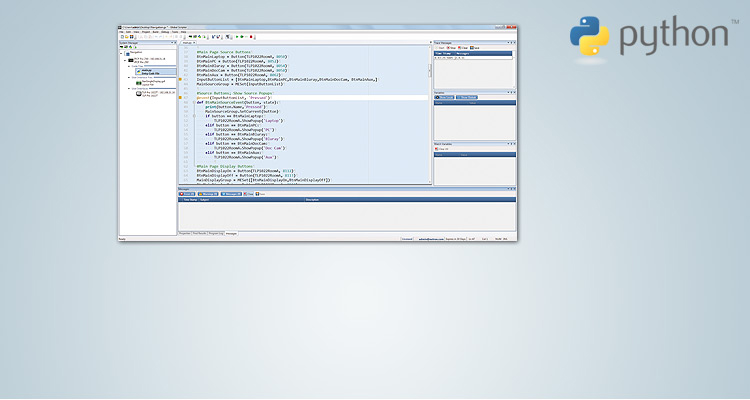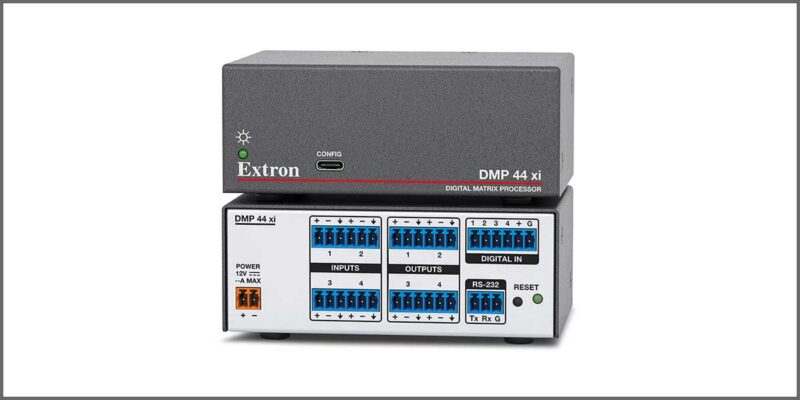Extron’s Global Scripter and the Value of Being Non-Proprietary
 Recently, Extron has become more public about its Global Scripter programming features. I believe that this new path that Extron is taking is going to be a major change for the AV industry. The biggest piece of news is that the Global Scripter uses Python as its base for programming. The potential that this opens for the AV industry is incredible.
Recently, Extron has become more public about its Global Scripter programming features. I believe that this new path that Extron is taking is going to be a major change for the AV industry. The biggest piece of news is that the Global Scripter uses Python as its base for programming. The potential that this opens for the AV industry is incredible.
First, the popularity of Python is very high. Most professional programmers understand the language or are very easily able to learn it. It looks and functions like other common professional languages. This allows professional programmers to begin programming in our world. I understand that some AV programmers could see this as a threat, because it opens up what was previously a walled garden. For an future-sighted person, it actually presents flexibility and growth for our industry. It opens up a much broader base of applicants for programming jobs and brings in a trained programming mind to firms. This is not meant as an insult to the hundreds of very talented AV programmers in our industry — but many of these people are trained in the specific programming application, as opposed to being trained in the study of programming.
Many businesses already employ talented programmers; this includes education as well as other sectors. By using the knowledge these programmers already have and partnering with your AV programmers, you also open options as to what systems can be integrated. Using the various APIs of building automation systems, calendaring systems, security systems and any other type of networked systems, integrating AV systems becomes much easier. Something that has long bothered me is when interesting new products come out, but they tie into other proprietary systems. Some examples of this are touch panels that sit outside of rooms and tell you if the room is available and allow you to schedule events in the room right from the panel. But those systems are typically tied into one or two scheduling systems. Also, all of the remote monitoring systems produced by AV manufacturers are proprietary. They need to provide a link into other systems. With Python, which is open source, designers are able to tie into any other system that has APIs. You don’t have to rely on a vendor creating that link for you.
A significant push in our industry has been to market ourselves to high schools, colleges and tech schools. I think we have struggled in many ways with that because we had to work to prove we were more than just an industry that sold and mounted televisions. This move, and hopefully future similar moves by other companies, makes it much easier to recruit computer science majors, engineers and other technology focused students. At a recruiting fair, open AutoCad and show the students the schematic drawings, talk to them about programming in a language they know and suddenly they can begin to see a future in the industry.
Not only will this bring new opportunities and new ideas to to our industry, it will also bring some challenges, and of course with that, even more opportunities. One of the biggest challenges will the be security, which is perhaps the biggest issue with this move by Extron. By implementing such a popular and well known programming language, it opens the industry up to more security threats. This is something that Extron will need to deal with, and so will support programmers and their customers. But it also presents the opportunity for integrators to provide cybersecurity services to their customers.
I can only hope that more and more of our industry makes a similar move. The more open we are to alternative ways of thinking about and performing our jobs, the more sustainable we are as an industry.





